For generations, people have turned to herbal infusions both for pleasure and for their reputed health advantages. Many individuals believe that specific herbal teas can help lessen symptoms of stress, nervousness, and other emotional health issues.
Keep in mind that a remedy that benefits one person might not help another. It can take experimentation to discover the right herbal tea or blend that suits you.
Although herbal teas differ from supplements like capsules, oils, tinctures, and pharmaceutical drugs, they can still interact with other treatments. Always consult a physician or qualified healthcare provider before incorporating herbal tea into your regimen.
Advantages of herbal tea
Certain herbal infusions may help calm occasional tension and anxiety, while others may be better suited as a regular complementary therapy for long-standing conditions.
Other possible benefits of drinking various herbal teas include:
- better sleep and relief from insomnia
- soothing an upset stomach and other digestive complaints
- easing menstrual cramps
- reducing nausea and morning sickness
- supporting healthy blood pressure
Continue reading to find which teas might help calm and support your overall sense of well-being.
Peppermint (Mentha piperita)

This familiar kitchen herb can be used for more than flavoring dishes. Some studies indicate its aroma can decrease feelings of irritation, anxiety, and tiredness.
Other research finds that inhaling peppermint oil’s scent may help reduce anxiety in people who were hospitalized after a heart attack or following childbirth.
- Best used for: Peppermint tea can help relieve stress-related feelings such as anxiety and may also help when you’re feeling fatigued.
Chamomile (Matricaria chamomilla/Chamaemelum nobile)

This daisy-like blossom is synonymous with relaxation and is one of the most recognized calming teas.
A 2016 study reported that long-term chamomile extract use significantly reduced moderate to severe symptoms of generalized anxiety disorder (GAD), though it didn’t prevent future flare-ups.
- Best used for: Chamomile is prized for its calming and mildly sedative effects and can also ease stomach upset and reduce pain and inflammation.
For more on chamomile preparations, see chamomile oil.
Lavender (Lavandula officinalis)

Lavender is well-known for its mood-stabilizing and calming qualities. Remarkably, it might rival certain medications for anxiety relief.
A 2010 study discovered that silexan, an oral lavender extract, was as effective as lorazepam in adults with GAD.
- Best used for: Lavender is helpful for reducing anxiety and can support healing of skin conditions such as acne and burns, as well as relieving body aches.
Valerian (Valeriana officinalis)

Valerian root is often used as a herbal remedy for sleep problems. It might help anxiety-related sleeplessness, although the evidence is mixed.
A 2015 study found that valerian extract lowered anxiety in women undergoing a medical procedure.
- Best used for: Valerian may improve insomnia and address issues such as headaches and heart palpitations.
Gotu kola (Centella asiatica)

Used as a traditional tonic across many Asian cultures, gotu kola is often employed to ease tiredness, anxiety, and low mood.
A 2012 animal study suggested gotu kola extract might be effective against both acute and chronic anxiety, though more human research is needed.
- Best used for: Gotu kola may help with anxiety, depression, stress, and insomnia, and there’s preliminary evidence it could ease some Alzheimer’s symptoms.
Lemon balm (Melissa officinalis)

A member of the mint family with a citrus scent, lemon balm is commonly used for insomnia, anxiety, and depression. It appears to work by enhancing GABA, a calming neurotransmitter.
One 2011 study showed lemon balm extract helped mild to moderate anxiety and insomnia. A 2018 study found a lemon balm supplement reduced anxiety, depression, stress, and sleep problems in people with angina.
- Best used for: Lemon balm is typically used for insomnia, depression, and anxiety relief.
Passionflower (Passiflora incarnata)

Passionflower has a long history of use for improving sleep and may also reduce anxiety.
A 2017 study reported that a passionflower supplement was as effective as a conventional medication for decreasing anxiety in dental patients.
- Best used for: Passionflower may help with both insomnia and anxiety and has been associated with improvements in some digestive complaints.
Green tea (Camellia sinensis)

Green tea is rich in L-theanine, an amino acid that may reduce anxiety.
A 2017 study found students who drank green tea had lower and more consistent stress levels than those in the placebo group. Green tea also boosts focus because the L-theanine combined with caffeine can enhance attention, according to a 2010 study.
- Best used for: Regular green tea consumption may help lower anxiety and stress.
Ashwagandha (Withania somnifera)

An Ayurvedic herb, ashwagandha is touted for reducing stress and fatigue.
A 2012 study showed root extract significantly lowered stress measures over two months. A 2014 review also concluded ashwagandha extract reduced feelings of stress and anxiety, though more research is necessary.
- Best used for: As an adaptogen, ashwagandha may help manage anxiety and possesses anti-inflammatory and antioxidant properties.
Holy basil (Ocimum sanctum)

Known as tulsi, holy basil is related to European and Thai basils.
Evidence on its effects for anxiety or stress is limited. A 2008 study reported that a holy basil extract reduced GAD symptoms.
- Best used for: Holy basil may offer physical and mental benefits, including anxiety relief, easing stomach pain, and reducing cough and joint pain, though evidence is limited.
Fennel (Foeniculum vulgare)

Fennel is a tall herb with yellow blooms, native to the Mediterranean.
Traditionally, fennel tea has been used to calm anxiety. While more research is needed, a 2018 study showed fennel had anti-anxiety and antidepressant effects in postmenopausal subjects.
- Best used for: Fennel is excellent for digestive issues often linked to anxiety; it may also ease menstrual complaints, coughing, and act as a mild diuretic.
Hops (Humulus lupulus)

Hops contribute a bitter note to some beverages, but they can have calming effects.
A 2017 study found hops supplements reduced mild symptoms of depression, anxiety, and stress. Combined with valerian, hops may also improve sleep quality.
- Best used for: Hops are useful for some mental health concerns like depression, anxiety, and stress, and can help with sleep.
Licorice (Glycyrrhiza glabra)

Licorice root, a common component in cold-and-flu blends, is also used as a sweetener and confectionery flavor.
Some people take licorice to combat stress and fatigue, but the research is sparse. A 2011 animal study suggests licorice extract may reduce stress. Another 2013 study in mice found licorice extract can amplify the anti-anxiety effects of valerian and some anxiety drugs.
- Best used for: Though limited evidence exists, licorice might help reduce stress and anxiety.
Catnip (Nepeta cataria)

While catnip excites cats, it can produce a calming infusion for people.
Traditionally used to relieve anxiety, catnip contains compounds similar to those in valerian, though it’s uncertain whether the effects are comparable.
- Best used for: Catnip contains nepetalactone, which resembles valepotriates in valerian; these compounds may ease anxiety and help with sleep problems.
St. John’s wort (Hypericum perforatum)

St. John’s wort is one of the most researched herbal treatments for depression and may also help with anxiety symptoms.
Because it can interact with many medications and cause adverse effects, consult a doctor or pharmacist before trying it.
- Best used for: St. John’s wort may lower stress and stress-related hormones and could help relieve depression or anxiety symptoms.
Herbal blends worth trying
Traditional Medicinals Cup of Calm

This blend combines chamomile, catnip, lavender, and passionflower to provide a range of sleep-promoting and stress-relieving benefits.
Chamomile and lavender are most recognized for anxiety relief, while catnip and passionflower primarily support sleep but can also aid anxiety.
The Republic of Tea Get Relaxed

Featuring rooibos as a base, Get Relaxed also contains rose petals, lavender, passionflower, and chamomile—ingredients that can ease mild anxiety and tension. You may also gain the general health perks of rooibos.
Yogi Stress Relief

Yogi offers Stress Relief blends with either kava kava or lavender.
Kava may produce stronger anxiety-reducing effects but has been associated with mild side effects. Lavender tends to be gentler and less likely to cause adverse reactions.
Numi Organic Bamboo

Numi Organic Bamboo features organic lavender, offering a mild calming effect for minor anxiety. The blend also includes elderflower, schisandra, blueberry leaf, lemongrass, spearmint, ginger, hawthorn, and bamboo.
Lipton Stress Therapy

Lipton Stress Therapy blends cinnamon, chamomile, and lavender—herbs known for stress relief, with chamomile and lavender having the most scientific backing.
A quick comparison of teas for anxiety
| Tea | Caffeine-free? | Best for |
|---|---|---|
| peppermint | yes | stress-relief, fatigue |
| chamomile | yes | relaxation, stomach upset |
| lavender | yes | anxiety-relief |
| valerian | yes | insomnia |
| gotu kola | yes | anxiety-relief, insomnia |
| lemon balm | yes | insomnia, depression, anxiety |
| passionflower | yes | insomnia, anxiety |
| green tea | no | anxiety, stress |
| ashwagandha | yes | anxiety, combatting inflammation |
| holy basil | yes | anxiety, stomach issues, joint pain |
| fennel | yes | digestion issues, period cramping |
| hops | no | depression, anxiety, insomnia, stress |
| licorice | yes | stress, anxiety |
| catnip | yes | anxiety, sleep issues |
| St. John’s wort | yes | stress, anxiety, depression |
| Traditional Medicinals Cup of Calm | yes | sleep, anxiety |
| The Republic of Tea Get Relaxed | yes | anxiety, stress |
| Yogi Stress Relief | yes | anxiety, sleep |
| Numi Organic Bamboo | no | anxiety, relaxation |
| Lipton Stress Therapy | yes | stress-relief |
When to see a doctor
If anxiety is significantly disrupting daily life, it’s wise to consult a healthcare professional.
Not sure if that applies to you? Watch for these signs:
- Persistent, excessive worry
- Physical symptoms like a racing heart
- Difficulty relaxing
- Avoidance of activities because they cause anxiety
- Feeling constantly tense or on edge
Frequently asked questions
Can I get anxiety-relieving tea at a coffee shop?
Yes. Many coffee shops that serve tea will carry several of these options. Herbal choices like chamomile are commonly available.
How does tea help with anxiety and sleep?
While specific ingredients may provide the effects mentioned above, the simple ritual of pausing to sip a warm cup can also contribute to stress reduction.
Is tea better than coffee for anxiety?
Because coffee contains higher levels of caffeine, it may be less effective than caffeine-free teas for promoting calm. Even compared with caffeinated tea, coffee’s caffeine content is greater and can cause jitters or interfere with sleep.
Bottom line
Some herbal teas may produce a calming effect, but more research is required to fully understand their benefits. Herbal teas or supplements should not replace prescribed treatments.
Certain herbal infusions can cause unpleasant side effects if consumed in large amounts and may dangerously interact with over-the-counter or prescription drugs. Many are not safe during pregnancy or breastfeeding.
Always check with a physician or other qualified healthcare provider before consuming herbal teas or taking herbal supplements. For alternatives and related options, you may also explore honeybush tea.


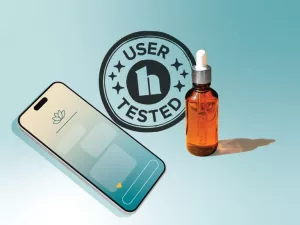
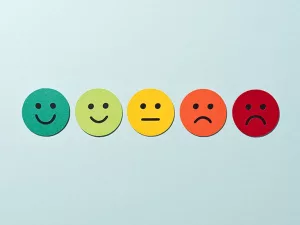



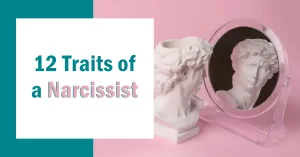
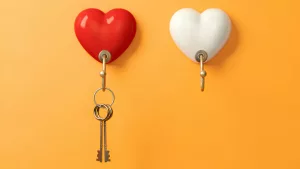






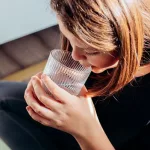
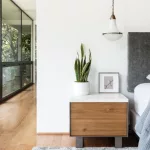
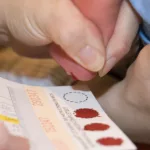

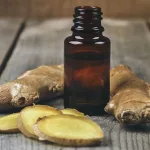




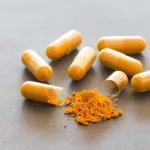
Leave a Reply
You must be logged in to post a comment.